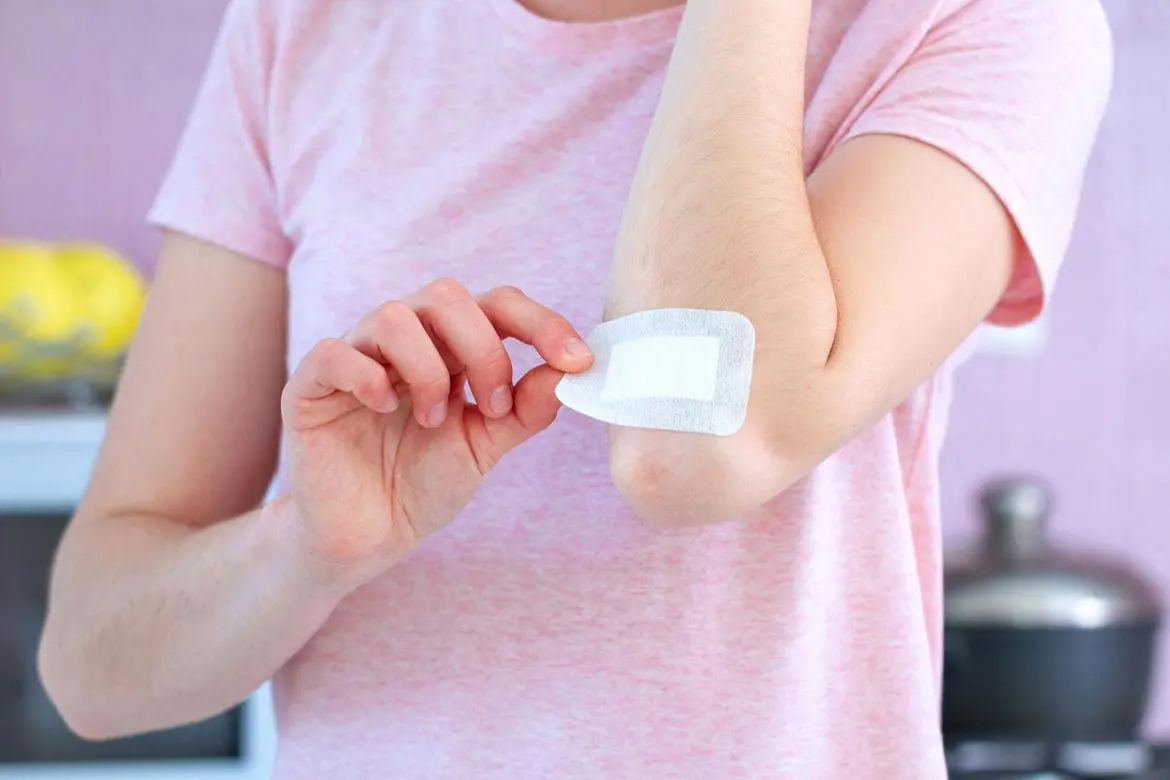What is a bruise?
A bruise, also known as a contusion or ecchymosis, is an injury that results in purple, black or blue discolouration on the surface of the skin covering the injured area. The discolouration occurs when blood vessels known as capillaries burst as a result of a cut, bump, or trauma of some sort, and the blood gets trapped under the upper layers of your skin.
Bruises usually change colour over time and fade away gradually. Fresh trauma may appear red at first, before turning blue or black due to low oxygen levels at the site. Over time the bruise will turn green and then yellow as the injury heals and the haemoglobin in your blood starts to break down.
Types of bruises
Bruises can be categorised depending on where they occur. The three most common types of bruises are:
- Subcutaneous: Subcutaneous bruises occur under your skin
- Periosteal: Periosteal bruises or periosteal contusion are bruises that occur on your bones. Because a periosteum has nerve endings and a periosteal bruise is an injury to its blood vessels, you may feel quite a bit of pain in the injured area.
- Intramuscular: Intramuscular bruises occur when trauma causes blood to collect around your muscles. This can interfere with a muscle's ability to function properly.
What causes a bruise?
Bruises can appear for many reasons and some people are more likely to bruise than others. The common causes are:
Physical injuries
- Bumping into hard object
- Sports injuries such as sprains or broken bones
- Muscle strains that cause microscopic tears under your skin, especially if you exercise a lot
Age
- Elderly people have thinner, more fragile skin, which is more prone to bruising.
Pre-existing conditions
Thrombocytopenia:
People with thrombocytopenia have a low platelet count. Platelets are an important part of the blood clotting process, causing sufferers to bleed and bruise easily.
Haemophilia:
This genetic disorder causes excessive bleeding and bruising.
Von Willebrand disease:
This disease causes a deficiency that also affects the clotting process and causes bruising more easily.
Deep vein thrombosis (DVT):
DVT causes blood clots that to form inside a vein, which may present as a bruise.
Cancers:
Patients suffering from cancers such as leukaemia can bruise more easily.
Other factors
- People who take aspirin and other medications that thin the blood are more likely to bruise.
- Those with a vitamin C deficiency will experience slower recovery of their bruises.
- People with sun damage may have more fragile skin that is more prone to bruising.
How do I treat a bruise naturally?
Because a bruise occurs beneath the skin, there is usually no risk of infection. Most bruises will heal on their own within a few days, without the need for medical attention.
If your bruise is particularly painful, you could try these steps to relieve the pain:
- Apply ice wrapped in a cloth to the affected area to reduce swelling and soothe the pain
- Rest the injured area
- Elevate the injured area
- Take a painkiller like paracetamol. Ibuprofen can cause increased bleeding
- Apply a natural arnica cream
- Wear clothing that covers and protects the bruise
- Be extra careful to avoid aggravating the injury
When are bruises considered dangerous?
Depending on the cause of the bruise or the severity, you might need to go to the emergency department.
If the following apply, go to your nearest Urgent Care Centre (UCC):
- The bruise is as a result of a serious fall or blow
- Your bruise is accompanied by a heavily bleeding wound
- The bruise is due to a head injury, which might have caused a concussion
- You have blood in your stool, urine, or eyes
- You have deep black bruises on your legs, which might indicate DVT
You should also visit your doctor if:
- You have frequent bruising that doesn't go away
- Your bruising is accompanied by bleeding from your nose or gums
- You have bruises under your nails
- You have bruises in a recurring pattern across your body
- You regularly bruise for no reason
- Your bruise is showing signs of infection, like red streaks, or you have a fever
- You find the area painful to move even after a few days
Medical conditions that cause bruising
Haematoma
When a bruise doesn't heal, grows in size, or feels firm to the touch, it could be a haematoma. A haematoma occurs when blood collects under the skin and forms a lump. The blood has nowhere to go and cannot be released, so it doesn't heal. If you think you have a haematoma, see a doctor. They can drain the blood from the site to help it heal.
Liver disease
People who drink alcohol excessively may find they bruise a lot, but it's not always down to tripping over while tipsy. Your liver plays a part in the clotting process, so if you drink heavily and you've damaged your liver, you might bruise more easily. A disease known as cirrhosis could be the cause, and it's a serious illness that needs medical attention. If you drink a lot and you notice regular bruising, see your doctor.
Should I worry about a bruise?
In most cases, bruises are nothing to worry about. Everyone gets them, and they don't usually need medical intervention.
However, do seek medical attention if you notice that your bruises are not going away after some time or frequency of bruising is out of the ordinary.













